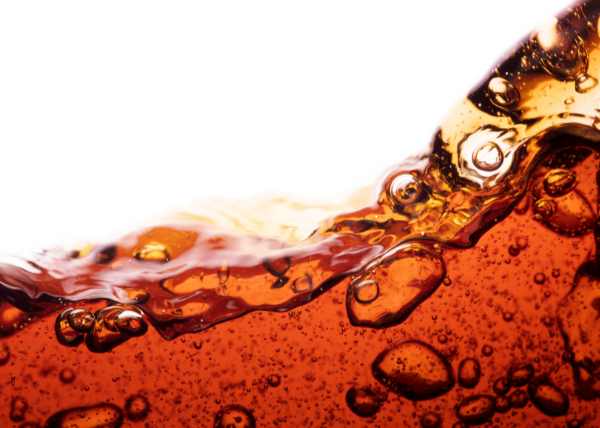
A standard 12-ounce (355 milliliter) can of Diet Coke contains about 125 milligrams of aspartame. To put that in perspective, that's less than half a gram. Remember, aspartame is significantly sweeter than sugar, so this small amount is enough to give Diet Coke its sweet taste.

There is no one-size-fits-all answer to what a safe amount of aspartame is, as it can vary depending on an individual's health condition and tolerance. However, regulatory agencies such as the Food and Drug Administration (FDA) and the European Food Safety Authority (EFSA) have established acceptable daily intake limits for aspartame. In the United States, the FDA has set the acceptable daily intake at 50 milligrams per kilogram of body weight.
Aspartame is an artificial, non-saccharide sweetener used as a sugar substitute in many low-calorie foods and drinks. It is approximately 200 times sweeter than sucrose, or table sugar, which means a little goes a long way.
Aspartame is metabolized in the body into its starting materials: aspartic acid, phenylalanine, and a small amount of methanol.
It's important to note that the FDA has set an acceptable daily intake (ADI) for aspartame at 50 milligrams per kilogram of body weight. For example, a person weighing 70 kilograms (approximately 154 pounds) can safely consume 3,500 milligrams of aspartame daily—equivalent to about 28 cans of Diet Coke.
Despite the approval from food safety organizations, there has been a fair amount of controversy and misinformation surrounding aspartame's use. It has been unofficially linked to a number of health problems, including cancer, neurological disorders, and weight gain. While we can't say if it's safe to consume aspartame, we can say it's important to stay up to date on the latest studies.
The World Health Organization (WHO) is set to make a significant announcement regarding the potential link between aspartame and cancer. Aspartame, an artificial sweetener widely used in various food and beverage products, has long been a topic of debate and concern. With increasing speculation about its safety, the WHO's declaration could have far-reaching implications for both consumers and the food industry. Let's delve deeper into the potential link between aspartame and cancer and what this announcement could mean for all of us.
For years, aspartame has been under scrutiny due to its controversial reputation. As an artificial sweetener, it is used as a substitute for sugar in countless food and drink products, including diet sodas, sugar-free desserts, and low-calorie snacks. However, concerns about its safety have persisted, with critics suggesting that it may have adverse health effects, including a potential link to cancer.
The WHO's International Agency for Research on Cancer (IARC) has been conducting a thorough evaluation of the available scientific evidence regarding aspartame and its potential carcinogenicity. The IARC is responsible for classifying substances according to their ability to cause cancer, and their assessments hold significant weight in the scientific and medical communities.
While the IARC's evaluation is still ongoing, there is mounting speculation that they will declare a link between aspartame and cancer. If this declaration is made, it could lead to a significant shift in public perception and consumption patterns, as well as potential regulatory changes in the food industry.
It is important to note that previous studies on aspartame's safety have yielded mixed results. Some studies have found no evidence of a link between aspartame and cancer, while others have suggested a potential association. However, the IARC's evaluation is expected to provide a comprehensive and conclusive analysis of the available evidence, which will undoubtedly influence future research and policies.
If the WHO does declare a link between aspartame and cancer, it may prompt consumers to reconsider their dietary choices. Individuals who have been relying on aspartame-containing products as a sugar substitute may opt for alternative sweeteners or natural alternatives. This shift in consumer behavior could have a significant impact on the food industry, with manufacturers potentially reformulating their products to cater to changing preferences.
Furthermore, regulatory bodies around the world may take action to impose stricter guidelines and labeling requirements for products containing aspartame. This would provide consumers with more transparency and enable them to make informed choices about their dietary habits.
It is crucial to await the WHO's official announcement before drawing any definitive conclusions. While the potential link between aspartame and cancer is concerning, it is essential to consider the overall balance of scientific evidence and expert opinions. Regardless of the outcome, this announcement will undoubtedly spark discussions and further research into the safety of aspartame and other artificial sweeteners.
Aspartame Cancer Lawsuits
If the WHO does make a link between aspartame and cancer, you can expect aspartame cancer lawyers to get busy as Class Action Lawsuits build.
In conclusion, the WHO's upcoming declaration regarding the potential link between aspartame and cancer has the potential to reshape the way we perceive and consume this artificial sweetener. As consumers, it is essential to stay informed, critically evaluate the available evidence, and make conscious decisions about our dietary choices. Additionally, further research is warranted to provide a clearer understanding of the potential risks associated with aspartame and other artificial sweeteners.





